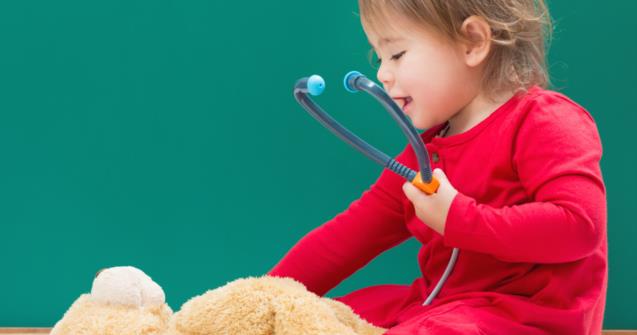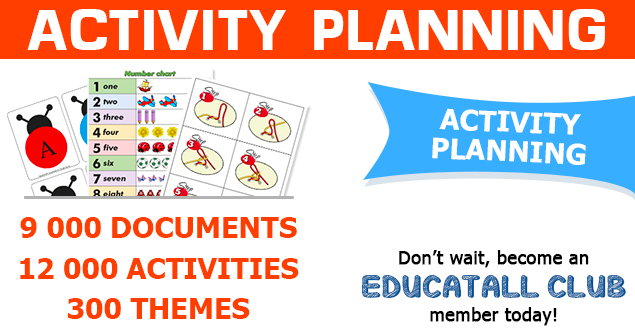
Tactics for helping children take care of their body
Lately, I have been reading a lot about anxiety. I am a big fan of yoga and enjoy practicing with children on a regular basis to help them become more aware of their body and take care of it. While researching the benefits of yoga for children, I discovered that using different methods to take care of your body can play an important role in managing anxiety. In early childhood, children very rarely receive an official anxiety disorder diagnosis. Anxiety is usually diagnosed once children are in school.
Nonetheless, anxiety can manifest itself at a very young age. That is why working towards preventing it during early childhood can play an important role. It all comes to down to teaching children healthy lifestyle habits by acting as a role model and letting them experiment with a variety of strategies to prevent anxiety or, at the very least, limit its manifestations.
For this article, I would like to focus on ways you can help children take care of their body. Since their body is directly connected to their mind, my goal is to help them understand how their body can positively impact their thoughts and reactions.
Together, let’s explore five (5) areas that can help children take good care of their body along with suggestions for applying each one to daily life.
Sleep
There is a scientific link between lack of sleep and manifestations of anxiety. Not getting enough sleep will considerably increase the frequency and intensity of tantrums and outbursts. Children who don’t get enough shut-eye can also anticipate more catastrophic situations and tend to imagine the worst. To counter this, adequate sleep hygiene is highly important.
How?
- Create a sleep routine that will ensure children get enough sleep.
- Provide calm, relaxing activities before naptime/bedtime: visualization, yoga, reading a book, etc.
- Be consistent. Children’s biological clock will adapt to your sleep routine.
Nutrition
All foods containing sugar or caffeine, such as chocolate, increase brain activity and therefore foster manifestations that resemble stress.
How to avoid these reactions?
- Provide balanced snacks and meals. Avoid very sweet desserts. Instead, select fresh foods. As much as possible, stay away from store-bought processed foods.
- Encourage children to participate in meal and snack preparation.
- A few times per week, serve a potluck-style meal. Set all foods in the centre of the table and let children serve themselves. Try not to think about the details (such as messes) too much. Children will greatly appreciate getting to choose what they will eat and discover how to manage their portions as well as which foods they like and dislike.
Exercise
I am sure you already know that physical activity can have a positive impact on our body. Studies have shown that physical activity can decrease the frequency and level of anxiety and depression. Exercise increases the production of natural feel-good hormones while reducing the secretion of cortisol, the stress hormone. Exercise has a direct impact on psychological well-being.
How to integrate exercise?
- Plan activities that will provide children with the opportunity to be active every day. Children should be given the opportunity to move indoors and outdoors.
- Offer a variety of activities: yoga, running, physical games involving gross motor skills, walking like animals, etc. The options are endless.
Slowing down
Sleeping well is essential, we’ve already discussed that. However, finding brief moments throughout the day to take a break and relax is equally important.
How?
- Slow down, slow down, slow down. Stretch out your schedule and routines to make room for relaxing between activities. Put an end to overscheduling.
- Plan moments when you can sit down, relax, and do nothing at all…
Step away
With constant screaming, crying, bright lights, car sounds, and music, it’s safe to say that children evolve in an environment that relentlessly stimulates them on a sensory level. They can easily experience “mental overload”. A stimulating environment can lead to mental fatigue, stress, and anxiety.
How can you counter the impact of the environment?
- Voluntarily limit the presence of stimulants at certain times. Simply turn the lights down, close the curtains, turn the volume of the music down, and create solitary play opportunities to reduce the noise level.
- Create a calm corner, far from stimulating activities. Children can go to this area whenever they feel the need for quiet.
- Try to reduce the presence of irritating sounds as much as possible. For example, sliding tennis balls under chair legs can greatly help reduce the noise level in a daycare.
So, there you have it. I hope these five basic principles will help you and the children in your group take care of their body and mind. I hope they will have inspired you to think of other ideas you can add to your early childhood educator toolbox. Each addition to your toolbox has the power to improve your daily interventions.
Maude Dubé, Specialized educator

 Home
Home Theme activities
Theme activities
 Babies and toddlers
Babies and toddlers
 Arts and crafts
Arts and crafts
 Science
Science
 Creative recipes
Creative recipes
 Tips and tricks
Tips and tricks
 Special needs
Special needs
 Extra activities
Extra activities
 Educ-TV
Educ-TV
 Newsletter
Newsletter  Online store
Online store Educatall club
Educatall club

